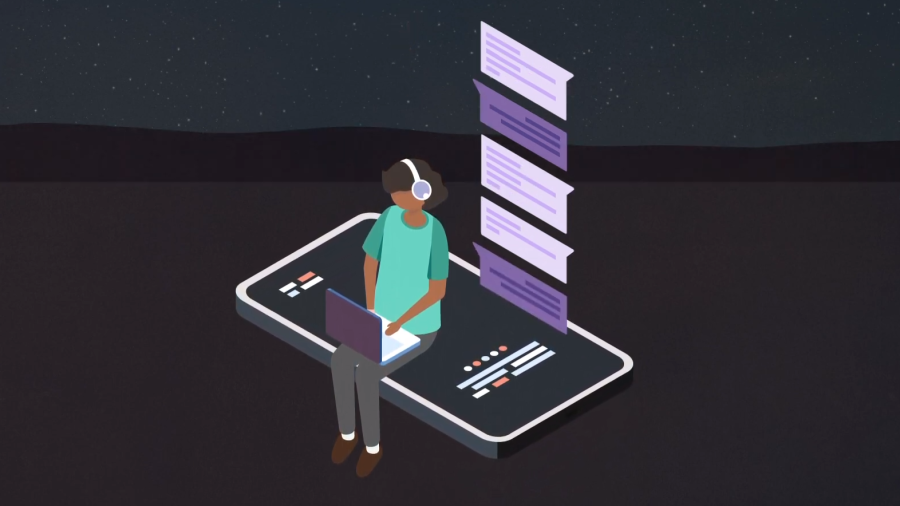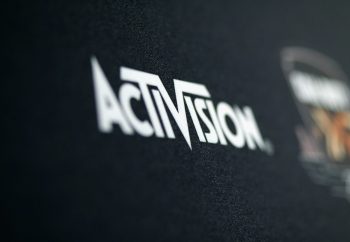A new hotline helps gamers with harassment and bullying

Video games have become a huge release for lots of people, especially the many who are entering their sixth month of some sort of coronavirus lockdown. Sales of video games are up 26% from a year ago. But online harassment has been a problem in gaming for years, and in June, dozens of women accused streamers — people who broadcast their gaming on Twitch or YouTube — of sexual harassment, abuse or assault.
Now, a longtime video game activist is launching a hotline for people who play games or work in the games industry to get support. I spoke with Anita Sarkeesian, the executive director of the Games and Online Harassment Hotline and also the nonprofit media site Feminist Frequency. The following is an edited transcript of our conversation.

Anita Sarkeesian: I think that streaming is a new medium, and that while it’s the same old abuses of power, it might look a little bit different or it might play out a little bit differently. If this isn’t a workplace issue, you don’t have an HR to go to, if you even trust your HR, right, like a lot of people don’t, rightfully so. So what does it mean for a community to rally and to reckon with abuses that are happening? How do we hold people accountable in a space that doesn’t really have mechanisms for it? I think those are some of the questions that we’re starting to ask and understand. Is it that we just kick people out of our communities when someone who’s brave enough to come forward tells their story of abuse? How do we put survivors and victims first, when we’re talking about what does it mean to create safe communities and spaces?
Molly Wood: Is there also an aspect of that that says, hey company, you need to be responsible for some of this as well, and bringing them what should have already been irrefutable data?
Sarkeesian: Yes, this is that tension of, we know that you’ve known that this has been going on. Where have you been? We need to move out of this sort of reactionary space and into really reckoning with, from the ground up, how are we building our workplaces and our communities to deal with the fact that these abuses can happen and to really center victims in that? How do we deal with it so that we can try and minimize these issues from happening at all?
Wood: Let’s talk for a minute about the other side of the equation. Talk to me about the unique issues that come up for people who make video games because I think maybe not everyone is familiar with how tough that industry can be.
Sarkeesian: In the games industry, we have a really cute, little word to describe overworking, and it’s called “crunch.” And this is something that I think we see in tech in general but specifically in games. I don’t think that there’s a separation between the issues around crunch and burnout and what we’re talking about in regards to abuse, because they come from the same root of not really trusting or caring for the humanity of your workers. We see that so much, especially the really big game studios.
Wood: You’ve been at this for a long time, and I admire your strength because, man, do you get beat up on the internet, and probably in real life, too. Do you see improvement? Do you think things are getting any better?
Sarkeesian: You’d think I’d have a canned response to the question at this point because I get asked it a lot, and the answer is complicated. And I think that anyone who answers that in a way that isn’t complicated, isn’t seeing the full picture. There is something to just acknowledge here of when you’ve been in these spaces, any activist that’s been doing work for a long time is tired. And it’s a lot harder to be hopeful and to be optimistic and to see the bright side of things. I just want to preface and acknowledge that we all kind of need a rest, to be honest, and it affects how we talk about and look at change. All of that is to say, in some ways yes, and in some ways no. Feminist Frequency has been collecting data for the last five years on the major game studios that announce games every year at E3, which is one of our biggest gaming events. Now, that didn’t happen this year, but there are still these announcements. And what we found when we collected the data of the gender identity of the playable characters in games, is that over the last five years, we have seen almost no change. The lowest point was 3%, and the highest point was 9% in female characters as protagonists. That’s five years of time that there’s not much change there. Now, there’s another change in the data that shows that games that have a gender binary option, that have character choice — where it’s an array of characters you can choose from — that’s increasing. But we’re not seeing a statistical increase in the amount of female characters we’re seeing as protagonists. Another data point is that, yeah, we’re not seeing quite as much egregious sexism. It doesn’t mean it doesn’t still exist, and it doesn’t mean there’s not still a lot of work that needs to be done. But I think we are seeing some shifts in the industry, and that brings us to, what’s next? We need to be talking about the stories that are being told, the ways that mechanics are being designed, who’s getting hired, who gets to tell those stories. There’s still a lot, a lot of work that needs to be done, as we’re moving towards creating a more inclusive games industry.
Related links: More insight from Molly Wood
More reading on those streamer allegations. One gamer actually created and compiled a spreadsheet with all the public allegations — there are more than 200 in the document. Business Insider has that story. And those June reports did lead to some streamers being banned from Twitch and Facebook Gaming, although Bloomberg reported earlier this week that several of those streamers just went on over to YouTube.
And speaking of the people who make games. This month, there were also allegations of sexual harassment and misconduct at Ubisoft, the Paris-based gaming company that makes “Assassin’s Creed” and “Far Cry.” More than a dozen workers publicly accused employees of sexism, sexual assault and racism, that they say has been ignored for more than a decade. One executive has been fired: the company’s chief creative officer, who, among other things, reportedly held lots of business meetings at strip clubs. His firing was apparently a huge and unexpected action, but employees say there’s still a lot to do. Which, I mean, isn’t there always?
The future of this podcast starts with you.
Every day, the “Marketplace Tech” team demystifies the digital economy with stories that explore more than just Big Tech. We’re committed to covering topics that matter to you and the world around us, diving deep into how technology intersects with climate change, inequity, and disinformation.
As part of a nonprofit newsroom, we’re counting on listeners like you to keep this public service paywall-free and available to all.
Support “Marketplace Tech” in any amount today and become a partner in our mission.


















